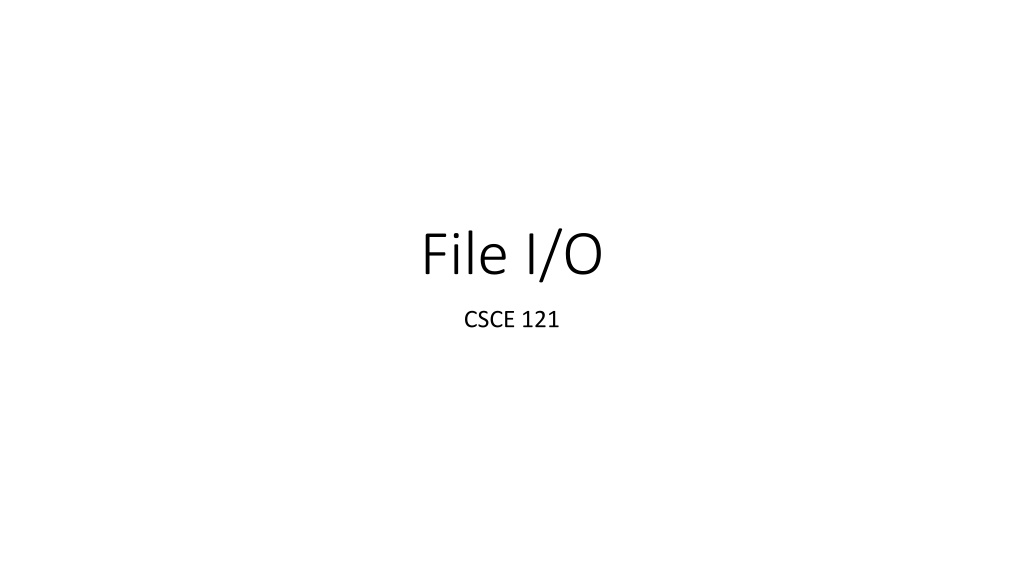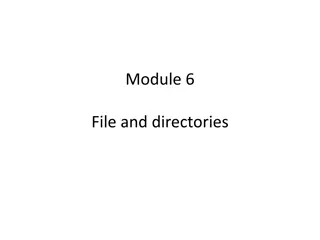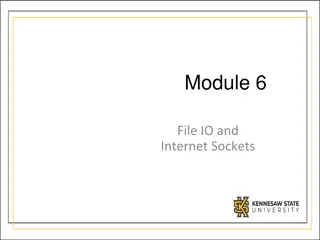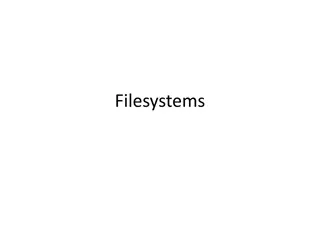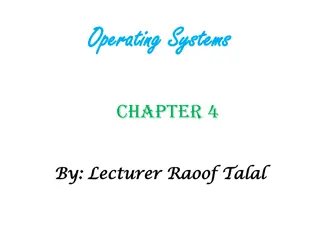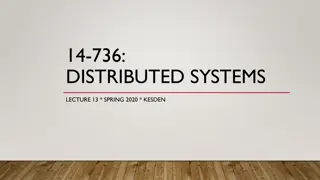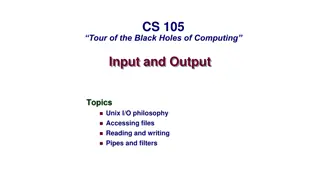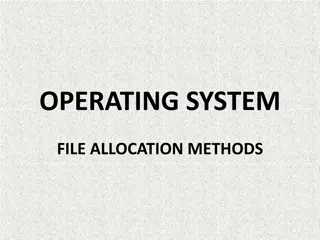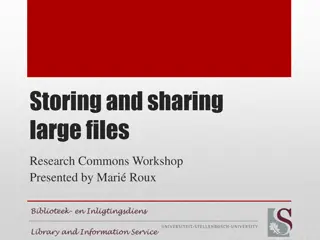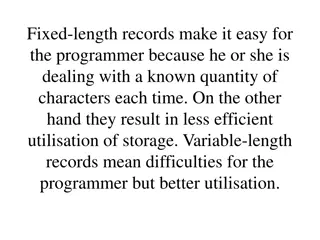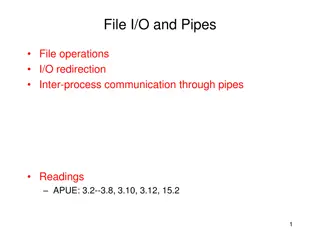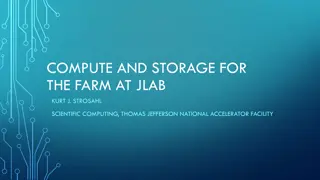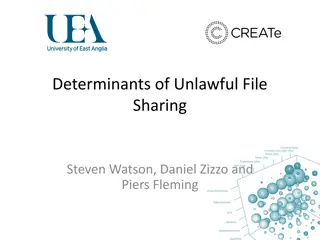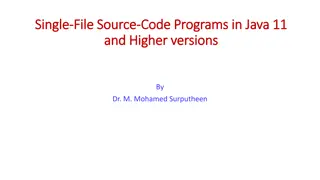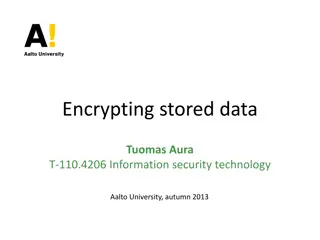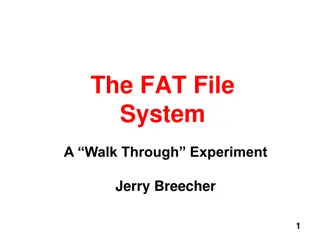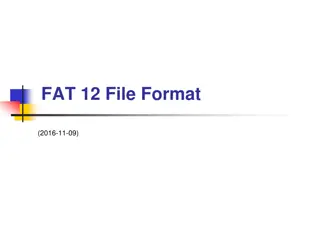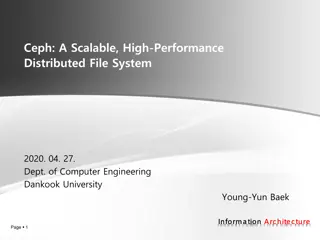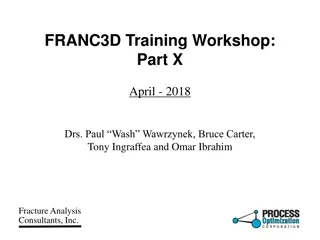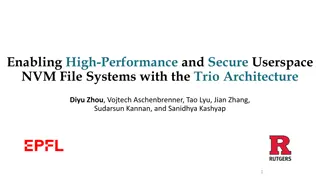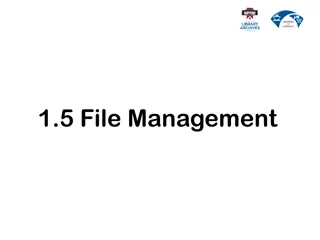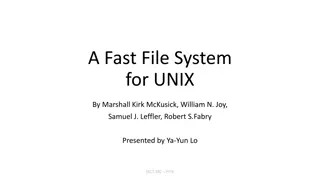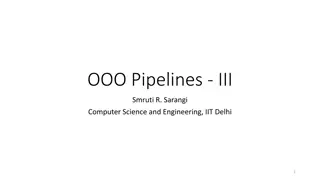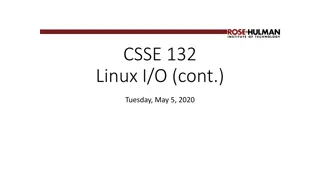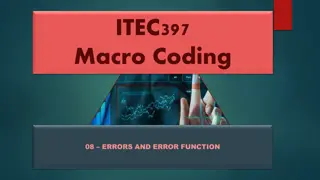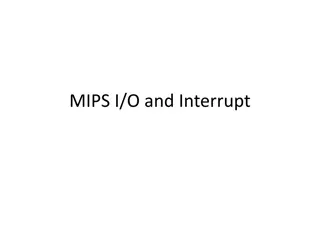Efficient File I/O Handling in C++
Effective management of file input and output operations in C++ is crucial for smooth program execution. The Resource Acquisition Is Initialization (RAII) technique offers a preferred approach for interacting with file streams, ensuring proper resource handling during an object's initialization and destruction phases. This method simplifies file handling by automatically acquiring and releasing resources, improving code clarity and efficiency.
Download Presentation

Please find below an Image/Link to download the presentation.
The content on the website is provided AS IS for your information and personal use only. It may not be sold, licensed, or shared on other websites without obtaining consent from the author. Download presentation by click this link. If you encounter any issues during the download, it is possible that the publisher has removed the file from their server.
E N D
Presentation Transcript
File I/O CSCE 121
General Process 1. Open File 2. Check that file opened successfully 3. Use file (i.e. read/write) 4. Close File
RAII Resource Acquisition is Initialization (RAII) Preferred way of interacting with objects in C++ More on this later when we create our own objects that use dynamic memory. Prefer to let objects get resources (e.g. open a file) during its initialization. Prefer to let objects dispose of resources (e.g. close a file) during its destruction. Automatically happens for objects created in a function.
RAII with File Streams RAII approach used in Stroustroup zyBooks approach 1. Declare/define file stream and let initialization open file stream. 1. Declare/define file stream. Explicitly open file stream. 2. Check if file opened successfully. 3. Use file stream. (i.e. read/write) 4. Explicitly close file stream. a. b. 2. Check if file opened successfully. 3. Use file stream. (i.e. read/write) 4. Implicitly close file. i.e. Do nothing and let the file close when the object is destroyed.
Code differences zyBooks { ifstream infs; infs.open( filename.txt ); if (infs.is_open()) { // use file infs.close(); } } RAII { ifstream infs( filename.txt ); if (infs.is_open()) { // use file } } // closes automatically
Sometimes you still need old fashioned way Maybe you are running a program that opens multiple files inside a loop Before Loop begins, declare/define file stream. Inside loop 1. Open file 2. Check if it opened successfully 3. Use file 4. Close file Note that here, open/close happens multiple times for the same file stream object
